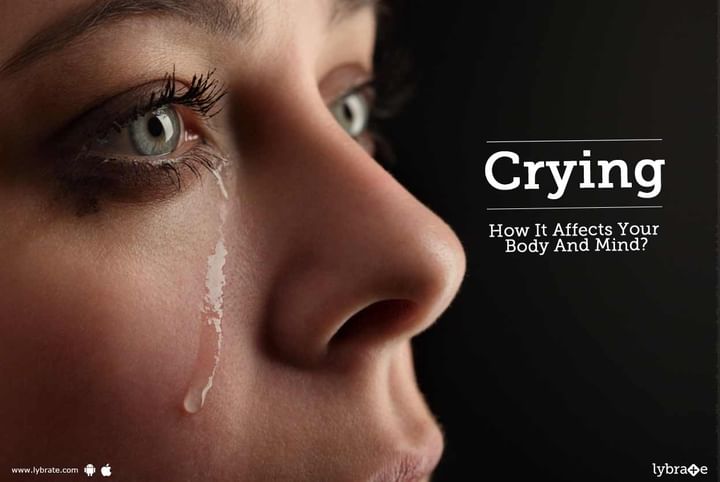Crying: How It Affects Your Body And Mind?
Do you know that every little activity that you perform on a daily basis impacts your body? What you eat, how long you sleep and even every tear you shed affects your body. Most people are aware of how their body reacts to major activities, like exercising, but few are aware of how the body reacts when they cry.
While you are generally concerned with the mental cause and effect of crying, have you thought about what crying does to you physically? Tears are not always shed when a person is upset. Tears are a body's way of expressing itself as well as protecting itself. Everything from a happy ending in a movie to a dust particle in the eye can make you tear up.
There are essentially three kinds of tears. Basal tears and reflective tears help keep the eyes lubricated and irritant free respectively. It is the psych tears, which we commonly refer to as crying, that come as emotional responses.
Crying might be a sign of emotional stress and pain but if you are wondering how it harms your body, the answer is that it does not. Crying does not harm one's body physically. In fact it does better than harm to your body, purely physically speaking. Here's how-
- When you cry, your tears help your eyes remain clear.
- It also has anti-bacterial properties that keep your eyes clean.
- Your eyes remain properly hydrated thus reducing any kind of irritation. You might feel dehydrated after a while due to the loss of water and salt.
- Even the excess manganese in your body gets washed out through tears.
But for some, the act of crying can cause medical complications. It can lead to fits or can cause an acute shortness of breath. For those with severe heart conditions, there can be a cardiac pain. Crying can take a toll on your body if you have certain medical conditions. For most people crying does more good for their body than harm.



+1.svg)
